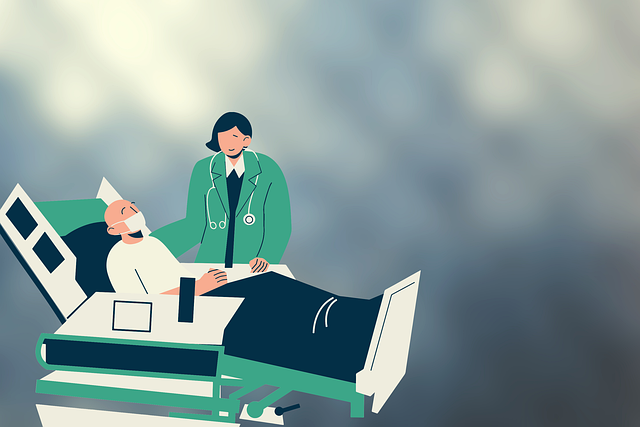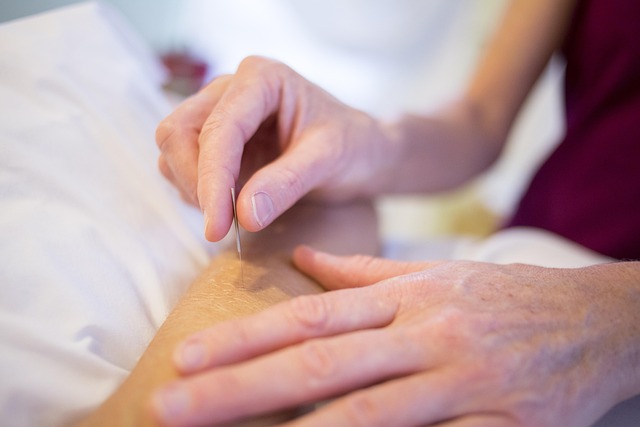Post-traumatic stress disorder (PTSD) support groups are essential components of holistic PTSD treatment. These safe spaces facilitate peer-led or professional-guided discussions, offering individuals coping strategies and a sense of community. By sharing experiences and gaining insights, participants enhance their mental health outcomes, challenge negative thoughts, and build resilience. Various types of support groups cater to different preferences, with some focusing on peer guidance, others on professional expertise, and many now offering online access globally. The right group ensures individuals feel heard, validated, and supported in their recovery journey, ultimately fostering community healing.
“Support groups play a pivotal role in the journey towards healing from Post-Traumatic Stress Disorder (PTSD). This article delves into the transformative power of group therapy for PTSD sufferers, exploring its benefits as a complementary treatment. We examine various types of support groups tailored to different needs and provide insights on finding the right fit. From understanding the impact of PTSD to experiencing the nurturing community within these groups, this guide offers a comprehensive overview of effective PTSD treatment through social connection and shared resilience.”
Understanding PTSD and its Impact

Post-traumatic stress disorder (PTSD) is a mental health condition that can affect individuals who have experienced or witnessed a traumatic event, such as military combat, violent assault, or natural disasters. It’s more than just feeling scared or upset after an event; it’s a complex reaction that can lead to long-lasting symptoms like flashbacks, nightmares, severe anxiety, and avoidance behaviors. These symptoms significantly impact daily functioning, relationships, and overall quality of life, making PTSD treatment essential for recovery.
The impact of PTSD goes beyond the individual, affecting families and communities as well. Sufferers often isolate themselves due to feelings of shame or fear, leading to social withdrawal and increased risk of substance abuse. Support groups play a crucial role in PTSD treatment by providing safe spaces where individuals can connect with peers who understand their struggles, fostering a sense of belonging and support. These groups facilitate open discussions, share coping strategies, and offer encouragement, ultimately contributing to improved mental health outcomes.
The Role of Support Groups in PTSD Treatment

Support groups play a pivotal role in the complex landscape of PTSD treatment. These gatherings provide a safe and supportive environment where individuals affected by Post-Traumatic Stress Disorder can connect, share their experiences, and offer mutual aid. Beyond professional therapy sessions, support groups foster a sense of community, enabling members to build resilience and navigate their journey towards healing. By engaging in open discussions and peer support, participants can gain valuable insights, challenge negative thought patterns, and develop coping strategies tailored to their unique needs.
In the context of PTSD treatment, these groups offer a powerful complement to traditional therapies. They facilitate social connection, combat feelings of isolation, and promote emotional well-being. Through shared narratives and collective understanding, members find strength in numbers, recognizing that their experiences are valid and not isolated. This mutual support system can significantly enhance recovery outcomes, making support groups an invaluable resource for those navigating the challenges of PTSD.
Benefits of Group Therapy for PTSD Sufferers

Group therapy offers a unique and powerful approach to PTSD treatment, providing a supportive environment where individuals with shared experiences can connect and heal together. Unlike individual therapy, which focuses on one-on-one sessions, group therapy facilitates a sense of community among participants. This collective setting allows members to gain invaluable peer support, fostering a safe space to share their stories and struggles without fear of judgment. By witnessing others facing similar challenges, PTSD sufferers can feel understood and less alone in their battle.
The benefits of group therapy for PTSD are multifaceted. It encourages active participation in the healing process, promoting self-reflection and personal growth through open discussions. Members learn from one another’s coping strategies, exchange valuable insights, and develop a profound sense of camaraderie. Moreover, group therapy sessions often provide practical tools and techniques to manage symptoms, offering a holistic approach to PTSD treatment that complements traditional therapies.
Types of Support Groups for PTSD

Support groups play a significant role in PTSD treatment, offering a safe and supportive environment for individuals to share their experiences. These groups can be tailored to specific needs, with various types available. One common approach is peer-led support, where individuals with personal experience of PTSD guide and assist others through their healing journey. This method fosters a sense of community and understanding, as participants relate to one another’s struggles.
Another type is professional-led groups, facilitated by mental health experts who provide structured guidance and education on managing PTSD symptoms. These sessions often incorporate therapeutic techniques, such as cognitive-behavioural therapy (CBT) strategies, to help members process trauma memories and develop coping mechanisms. Additionally, there are online support groups that bridge geographical barriers, allowing individuals access to a global community of peers facing similar challenges in the comfort of their homes.
Finding the Right Support Group for Your Needs

Finding the right support group can significantly enhance your journey towards PTSD treatment and recovery. It’s essential to consider the specific needs and preferences that guide your choice. Some groups focus on peer-to-peer sharing, offering a safe space to connect with others facing similar challenges. Others may incorporate professional facilitators who provide expert guidance and education about PTSD. The ideal group should foster an environment of understanding, empathy, and non-judgement, allowing you to share experiences and learn coping strategies.
Matching your support group to your comfort level is crucial. Some groups encourage open discussions, while others maintain a more structured format with set agendas. Consider whether you prefer small, intimate gatherings or larger meetings that offer diverse perspectives. Additionally, the frequency and duration of sessions should align with your schedule and recovery goals. Ultimately, the best support group will empower you to feel heard, validated, and supported on your path towards healing from PTSD.
What to Expect During a Support Group Meeting

During a support group meeting for individuals suffering from post-traumatic stress disorder (PTSD), participants gather in a safe and non-judgmental environment to share their experiences and coping strategies. The meetings often commence with an introduction of new members, allowing everyone to feel welcomed. Following this, attendees may take turns sharing their stories, discussing the challenges they face, and highlighting the techniques that have helped them manage symptoms. These sessions provide a unique opportunity for individuals to realize they are not alone in their struggles, fostering a profound sense of community.
In addition to personal narratives, support group meetings typically involve guided discussions on various aspects of PTSD treatment. Facilitators or experienced members lead conversations on topics such as exposure therapy, cognitive processing therapy, and mindfulness techniques. These interactions encourage participants to learn from one another, exchange valuable insights, and develop a deeper understanding of their condition. Moreover, group members often offer practical advice on coping with triggers, managing anxiety, and improving overall well-being.
Building a Community: Nurturing Connections in Recovery

Building a community within a support group is an essential aspect of effective PTSD treatment. It provides individuals struggling with post-traumatic stress disorder (PTSD) a safe and understanding environment to share their experiences, fears, and hopes. Through open discussions, members foster connections that can be powerful catalysts for healing. The sense of belonging fostered in these groups empowers individuals to navigate their journey towards recovery more resiliently.
In a nurturing community, PTSD sufferers find peers who’ve had similar experiences, reducing feelings of isolation. This interconnectedness allows them to offer and receive emotional support, practical advice, and encouragement. Group dynamics can enhance self-worth, promote positive coping strategies, and create a powerful network that reinforces the individual’s commitment to their recovery.
